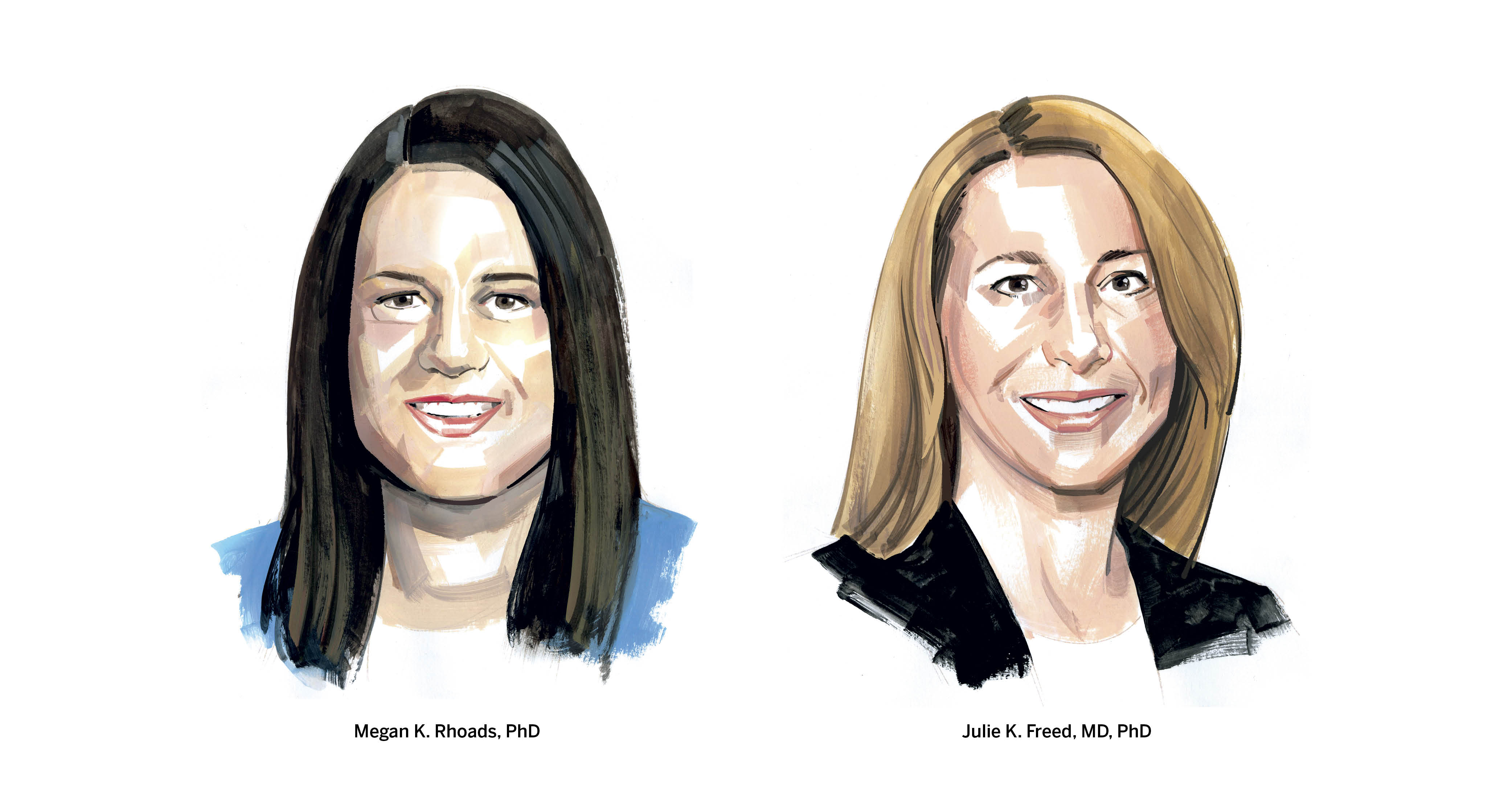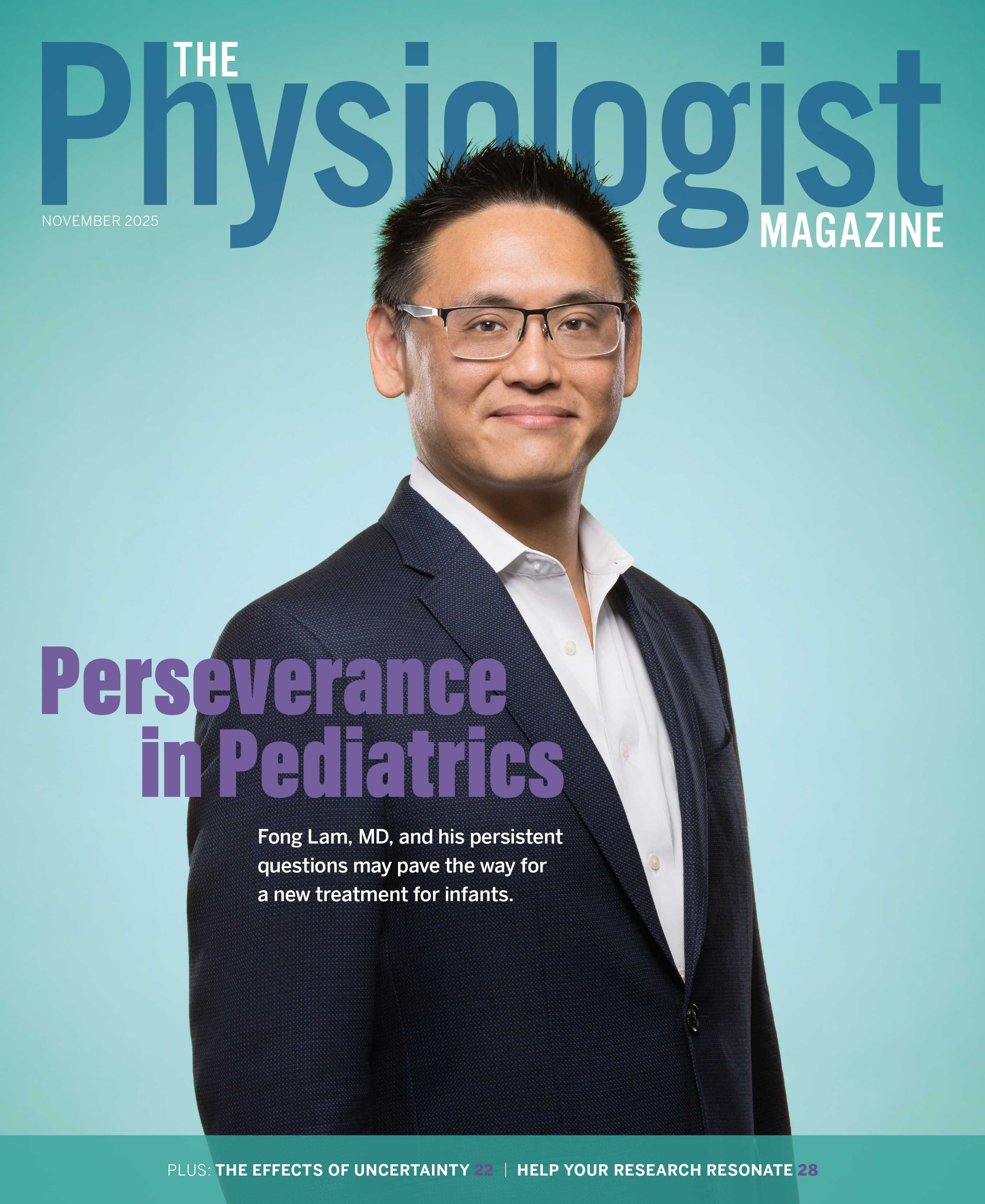Setting Yourself Up for Success in the Lab
Advice on how to create a stimulating, successful career in academia.

Each issue, we ask a student or early-career member to pose their career questions to an established investigator and mentor. Here, Megan K. Rhoads, PhD, an instructor in the Division of Nephrology, Department of Medicine, at the University of Alabama at Birmingham, asks Julie K. Freed, MD, PhD, how young faculty can set themselves up for success. Freed is executive vice chair, director of clinical research and associate professor of anesthesiology at the Cardiovascular Center at the Medical College of Wisconsin.
What skills do you think young scientists should try to grow as they transition from student to faculty?
Aside from the obvious skills, which include scientific writing and experimental design, it’s critical that young scientists learn how to mentor and run a research program and laboratory. Up until an individual becomes faculty, their success mainly stems from their own personal effort and quality of work. As a principal investigator, your success now depends on how well others perform. You need to be a good listener, handle issues with professionalism and motivate everyone around you to give you their absolute best.
How can young faculty set themselves up for success in their first job in academia?
My best piece of advice is to find a group of peers you can lean on for help and advice when you need it. I belong to a wonderful “research neighborhood” that includes four to five investigators who all study human vascular function. We share equipment and resources, which helps to keep costs down, but more importantly, we mentor each other. It’s comforting to know I can pick up the phone or walk down to their office and ask for advice, whether it be scientific or otherwise.
Now I know it’s hard to believe, but being an investigator has many challenges, and having people to lean on makes all the difference.
What are your most important takeaways for being a great mentor?
I find that I learn just as much (maybe more) from the mentee as they learn from me. This is a two-way street, and the mentee and I set expectations for each other right away. I don’t think of a trainee as cheap labor but an opportunity for me to help shape someone’s career trajectory. My hope is some day when I’m old and gray one of my former trainees will reach out and thank me for having a positive impact on their life!
What do you wish you knew earlier?
Sometimes you just need to be patient. Be urgent about making the effort, but be patient about seeing the results. I remember during the first few years of having my lab I wondered why graduate students and postdoctoral fellows weren’t knocking down my door wanting to join my lab. It takes time to create a strong research program. I often tell people in my lab “slow is steady and steady is fast.” In other words, just keep inching forward and eventually the results will be there.
How do you envision the field of physiology changing in the future? What can we do to retain great minds in our field?
The thing about physiology is we will need investigators who study function at all levels (whole organism, organ, tissue, cellular) for as long as humans exist. Technology is advancing faster than we can imagine, and we need to make sure physiologists are able to keep up. As chair of the Translational Physiology Interest Group, I also feel compelled to say we need to make every effort to translate our work to humans. Unfortunately, only roughly 10%–20% of what we discover in preclinical models is found to be true in human beings, which leads to the first “valley of death” in translational research. As for retaining great minds, we need to do everything possible to create a stimulating, supportive, inclusive and fun environment for all. I can’t imagine doing anything else, and my wish is for others to feel the same.
Got a career question you'd like to submit? Email it to tphysmag@physiology.org. We may use it in an upcoming Mentoring Q&A.
This article was originally published in the January 2025 issue of The Physiologist Magazine. Copyright © 2025 by the American Physiological Society.
The Physiologist Magazine
Read the Latest Issue
Don’t miss out on the latest topics in science and research.
Contact Us
For questions, comments or to share your story ideas, email us or call 301.634.7314.


